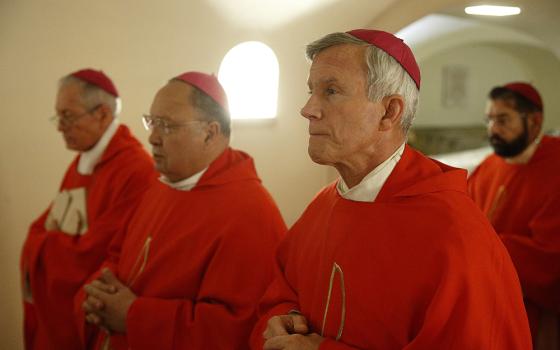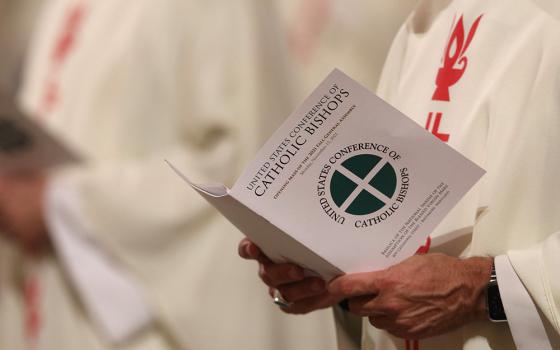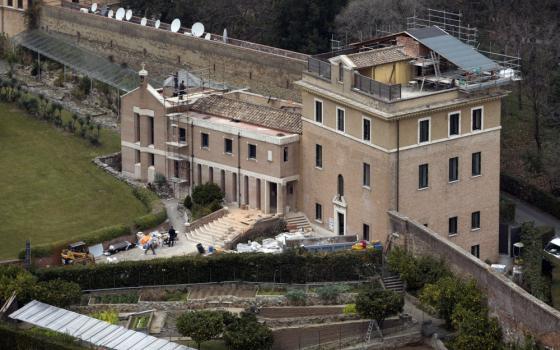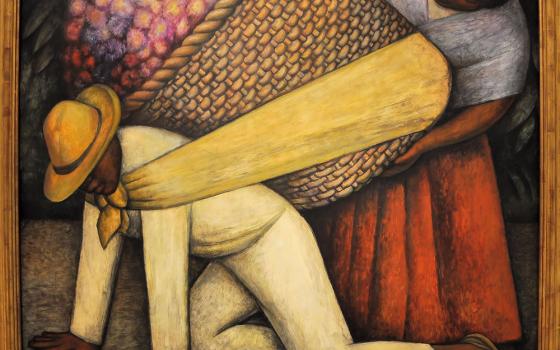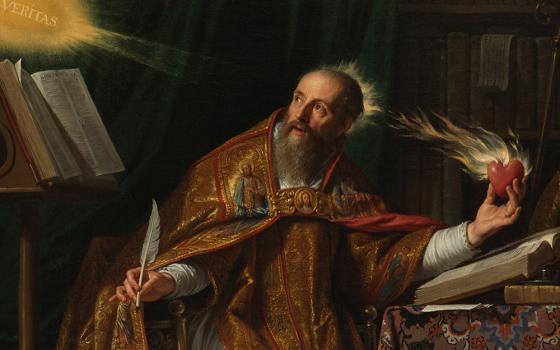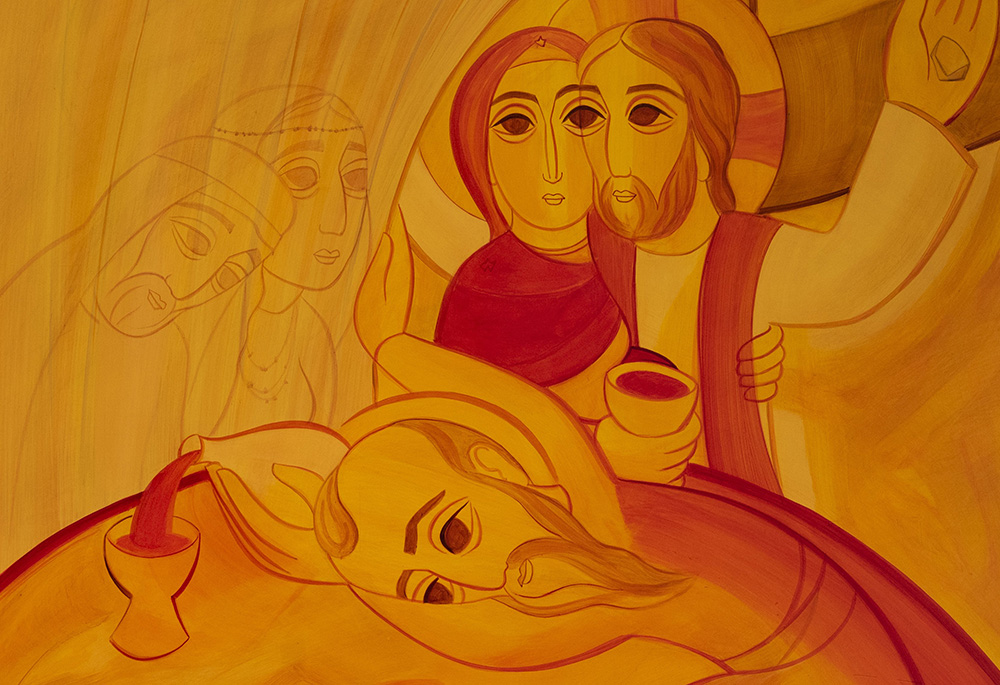
The official image for the 10th World Meeting of Families was released July 28, 2021. The image, created by Jesuit Fr. Marko Rupnik, depicts the Wedding at Cana. (CNS/World Meeting of Families)
"My hour has not yet come." Don't try to use that excuse with your mother! It didn't even work for Jesus.
Today's Gospel story could have been a wedding story that John picked up from the oral tradition. But whenever John retold an anecdote, every detail and word assumed layers of meaning. Just as the Josephs of Scripture were famous for dream interpretation, John knew how to uncover depth in every facet of an incident better than the finest jeweler can appreciate a cut diamond. Thus, today we hear about wine at a wedding and God's gift to a people who had lost touch with joy.
It starts out simply. Mary and Jesus and friends were at a wedding celebration. But the subject is not really the wedding. John tells us nothing about the goodness and aim of marriage. We have no idea who the newlyweds are. We know nothing about the ceremony, the dress, the music. No society page would pick up the story John tells. If the tale were to be published, it would probably go in the "Believe It or Not" section of the paper.
Here is the short version. Two people are supposed to be enjoying the happiest day of their lives with all their friends and the wine runs out. That's not just an embarrassment, but it seems a terrible omen: If there was too little wine at the wedding, what else will be lacking to the marriage? Who is to blame? The parents, godparents, steward? Maybe the people who drank too much from the get-go? Sure, blame can be spread all around, but even if a culprit is found, there is still no wine.
But for one woman.
Mary, the woman who taught Jesus to pray. She will not just sit back and watch the feast fizzle. She finds Jesus and announces: "They have no wine." Whether she used only those words or made them the centerpiece of a cajoling mother's entreaty, she got her point across.
Unfortunately, what she saw as a problem didn't fit Jesus' master plan.
At this point, John the Evangelist begins to write as much between the lines as in the text. Jesus says, "Woman, how is that our problem? My hour has not yet come." Jesus doesn't call her immah (mom), nor does he use her name as if he were addressing her with formal distance. No, the Greek says he called her gune, woman, as if she represented all of Israel, God's own bride. John is framing this incident as a symbolic depiction of God's people who have run out of joy.
Advertisement
In John's Gospel, Jesus does not teach about prayer as in Matthew, Mark and Luke. We might see Mary here as an image of Luke's persistent widow and the friend who comes in the night or the Syrophoenician woman of Mark and Matthew's Gospels. Like the psalmists who plea, "For the sake of your name, hear my cry!" Mary believes that God's name is too great, God's generosity is too famous to allow people to remain joyless and ashamed.
"My hour has not yet come." Jesus' reply was not enough for Mary. Representing her people, representing her needy world, she simply told the servants to do what Jesus bid them, knowing that when that happened, all would be well.
Two millennia later, Martin Luther King Jr. picked up Mary's theme in his book Why We Can't Wait. He wrote: "Time itself is neutral; it can be used destructively or constructively." Like Mary telling the servants to obey Jesus, King said, "Human progress never rolls in on wheels of inevitability; it comes through the tireless efforts of [people] willing to be co-workers with God." King wrote about the change that was past due for people of African descent in the United States. Like him, women and impoverished people in the Catholic Church are saying that necessary changes can't wait for the "right time" because when it comes to reform, that time never arrives.
As we enter into a new church year, Mary of Nazareth, the persistent guest at Cana, urges us to believe that the hour has come. The hour has come for us to believe that the reign of God can be palpable in our midst. The hour has come for us to listen to the urgings of the Spirit. The hour has come for the church to become genuinely synodal, appreciating and listening to the voice of each of her members, especially those on the margins. The hour has come for all of us to be co-workers with God and to listen to the Gospel. The hour has come to look at Christ and do whatever he tells us. Then we will know the joy God intends for humanity.

